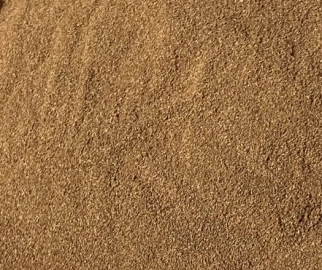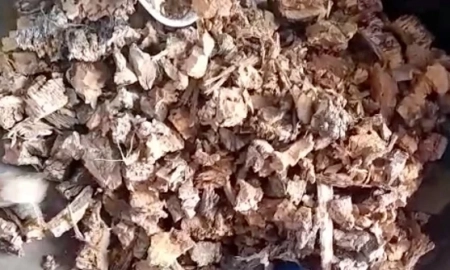Cork granules
Cork granules for construction and industry
Crushed natural cork. This is a very good medium density eco-friendly insulator, ideal for high volume fillings. It is obtained from natural cork, with a mechanical grinding process, granulometric classification, dust and earth cleaning, and humidity leveling. A totally ecological refined product is obtained.
Suitable for multiple insulating uses and for the manufacture of composite agglomerates.

Crushed cork for insulation
![]() Download catalog in PDF format
Download catalog in PDF format
Crushed virgin natural forest cork
Coming from areas of recovery of the forest. This granulate is a totally natural, vegetable and ecological product. Resulting in a perfect thermal and acoustic insulator.
Use and applications of the product
In industry, for Thermal Insulation of Deposits and hot water heaters.
Renewable Energy Insulation.
Agricultural
In construction it is ideal for coatings, insulating fillers and for mixing with insulating mortars that are interested in lightening their weight.
Mixed insulating mortars with cork granules
The most insulating and also the lightest mortars are made with hydraulic lime, without adding sand. Proportions according to experienced professional applicators: Proportions by volume:
Lime mortar with a solid component entirely of cork
75% cork granules with respect to the initial volume: 3 parts of crushed natural cork 1 part of NHL5 hydraulic lime Dilute with 0.80 parts of water
Other mortars are made with cement and sand aggregate. In this case, the proportion of cork granules is from 50% of the volume. The natural binder (mainly air lime, natural hydraulic lime or natural cement) also provides greater deformation capacity to the mortar than the Portland cement binder. For its part, Portland cement provides greater resistance. The balance between the different binders is essential to achieve the required resistance and deformation capacity, through an adequate dosage.
Other mortars are made with cement and sand aggregate. In this case, the proportion of cork granules is from 25% by volume.
The natural binder (mainly aerial lime, natural hydraulic lime or natural cement) also provides a greater deformation capacity to mortar / concrete than portland cement binder. For its part, portland cement provides greater resistance. The balance between the different binders is essential to achieve the required resistance and deformation capacity, by means of an adequate dosage.
Crushed into grains of black expanded ecological cork, steam-treated and with a modified cellular structure, more insulating. Resulting in a very efficient vegetable and ecological product, with good compressibility. Flexible and with very good recovery. Very good thermal and acoustic insulation.
Contact and situation
C/ Grecia, 23, 17600, Figueres, Girona, Spain
-
dummy 607 540 765
Where we are
Cork Products
- Ecological Cork Thermal Acoustic Insulation
- Anti-vibration cork
- Cork Expansion Joints for Construction
- Cork parquet - Decorative wall cork
- Rolls and Industrial cork sheets
- Cork sub Bases Parquet and Pavements
- Rolls and Sheets Cork - Rubber
- Cork boards. Cork Memos Stickers
- Cork stoppers. Cork granules. Cork balls
- Cork placemats - Cork coasters - Cork blocks for Yoga















